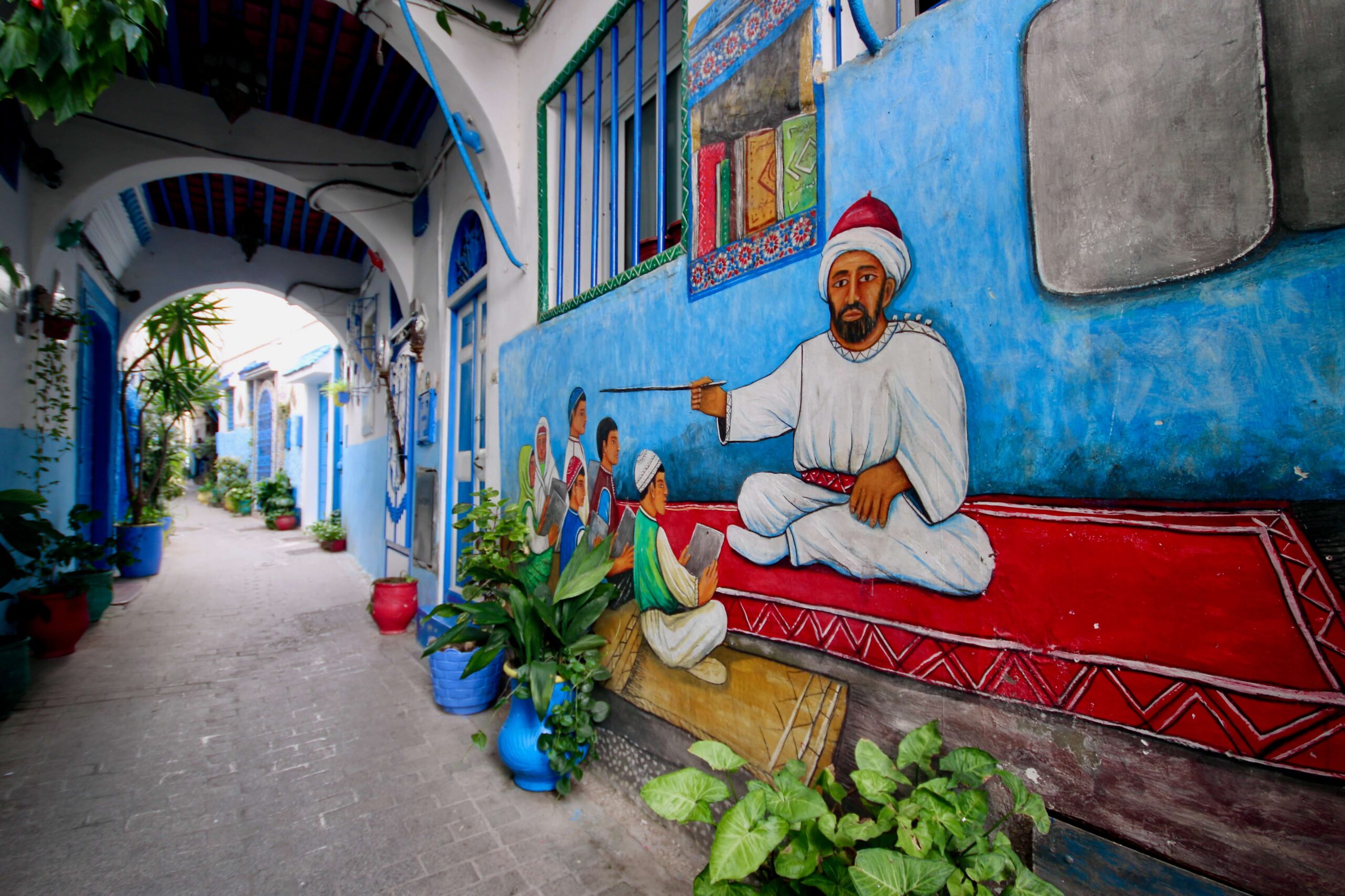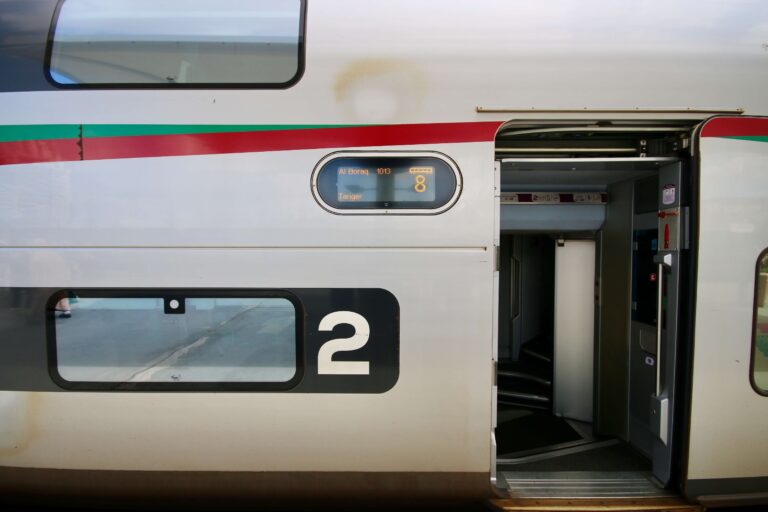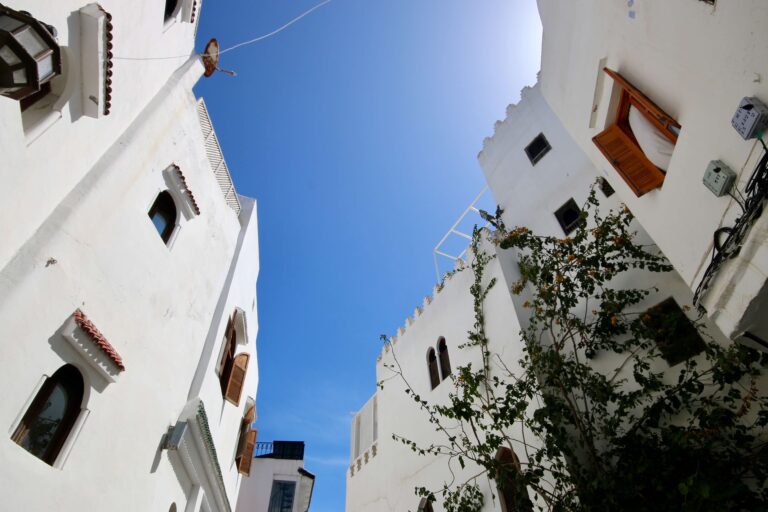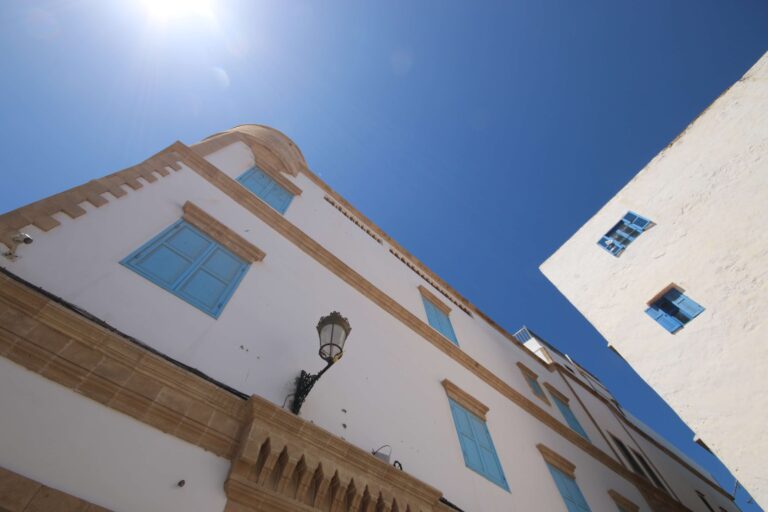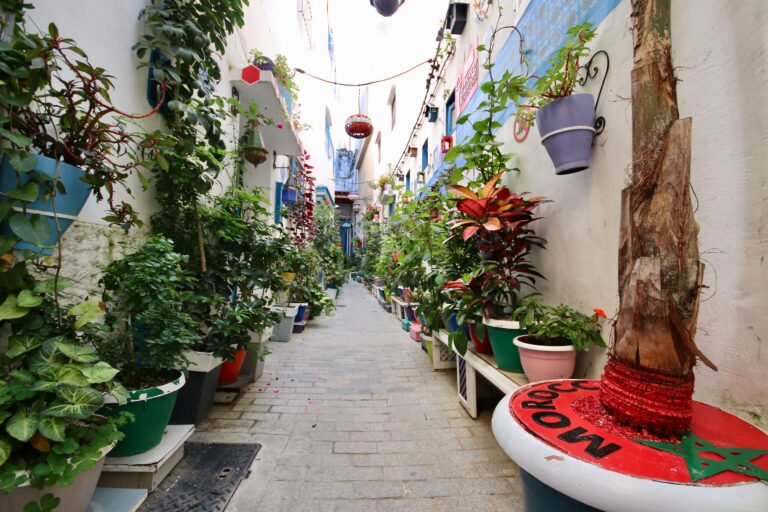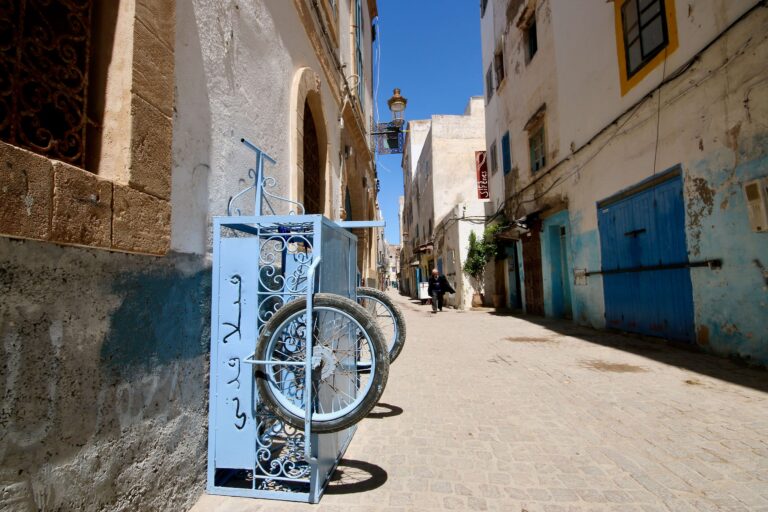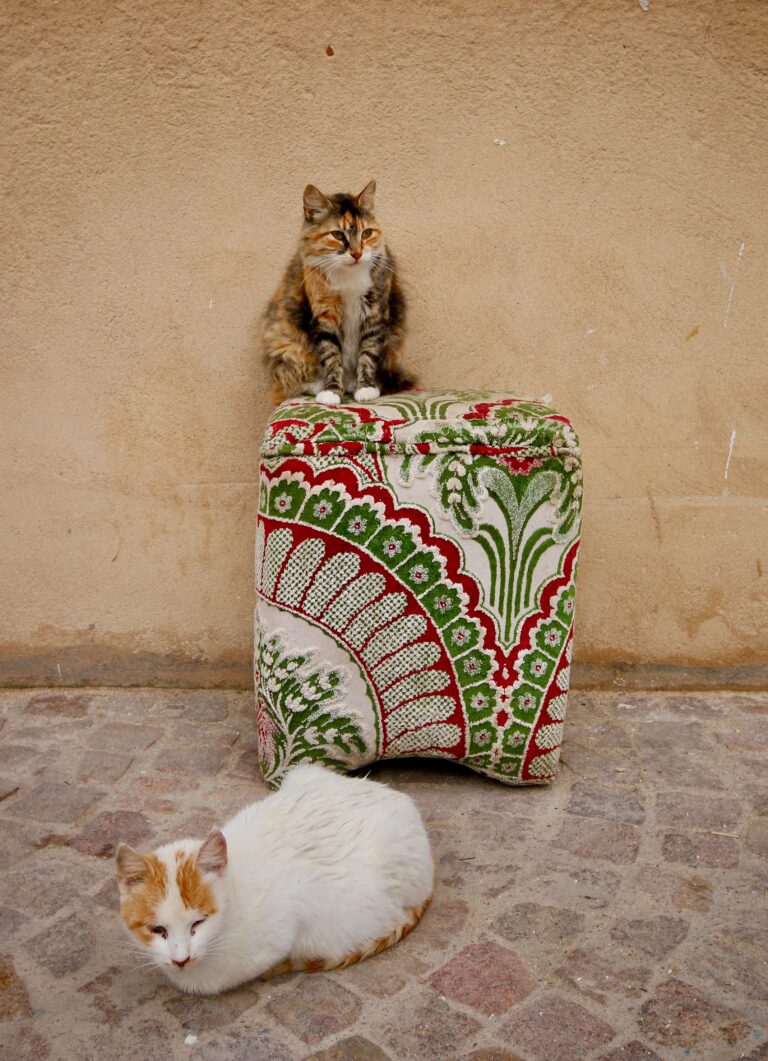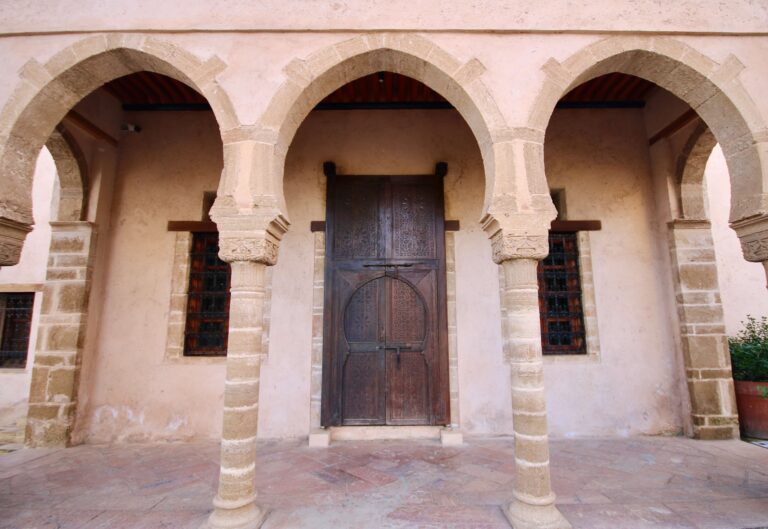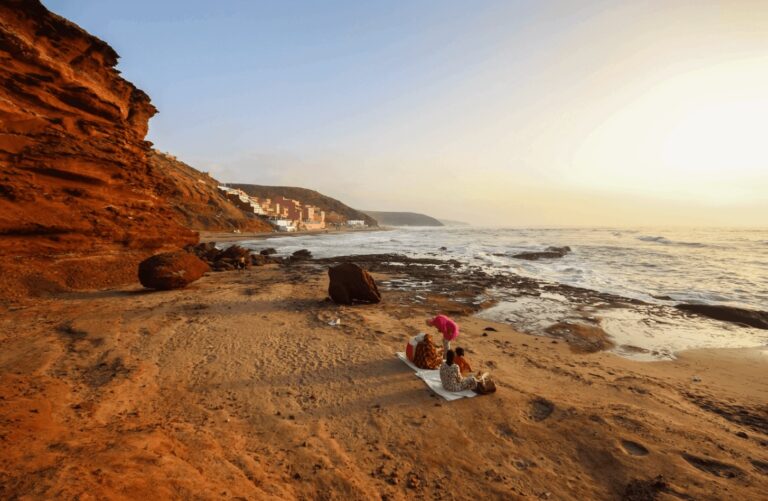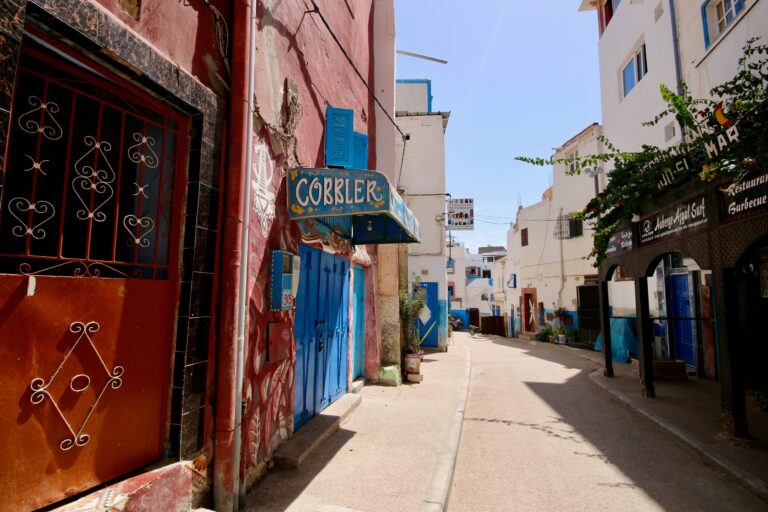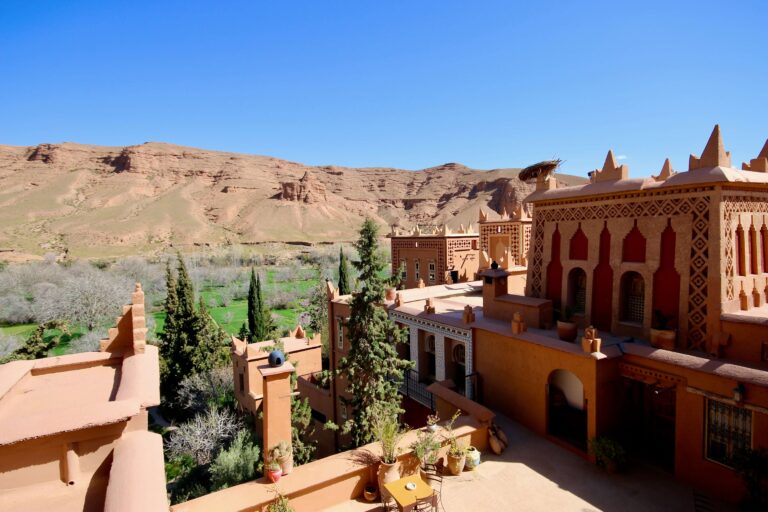Common Morocco Tourist Scams for Solo Travellers to Be Aware Of
Worried about common Morocco tourist scams as a solo traveller? This article is all about understanding what they are and how to avoid them.
I genuinely love Morocco and have had so many incredible experiences in the country, many of which have revealed the best of humankind.
Whether it’s travelling solo in remote regions, chatting with the grocer at my local store or asking for directions when I’m completely lost, the Moroccan people have shown me genuine kindness and incredible hospitality.
But I’m also aware that not everyone comes away with the same impression of the country. This is particularly true if they’ve been the victim of Moroccan tourist scams.
Reddit is full of travellers recounting stories of being hassled and ripped off, which have (understandably) left a bad taste in their mouths.
Based on these experiences, many don’t want to return to Morocco and they discourage others from travelling solo there too.
I find this incredibly sad, because the overwhelming majority of Moroccan people I have encountered over the last decade have been honest and warm. In fact, many have gone out of their way to ensure my impression of their country is a positive one.
I’m not here to tell you that these Moroccan scams aren’t real, because they are. But just because they have happened to others, it doesn’t mean they will happen to you. In fact, there are easy ways to avoid almost all of the most common Morocco tourist scams, provided you are aware of them in the first place.
In this article, I’ll share some of the most common tourist scams in Morocco for solo travellers to be aware of. That way, you can nip them in the bud before they happen to you. By understanding the most likely situations in which they occur and how to get yourself out of them, you’ll avoid encountering any serious issues.
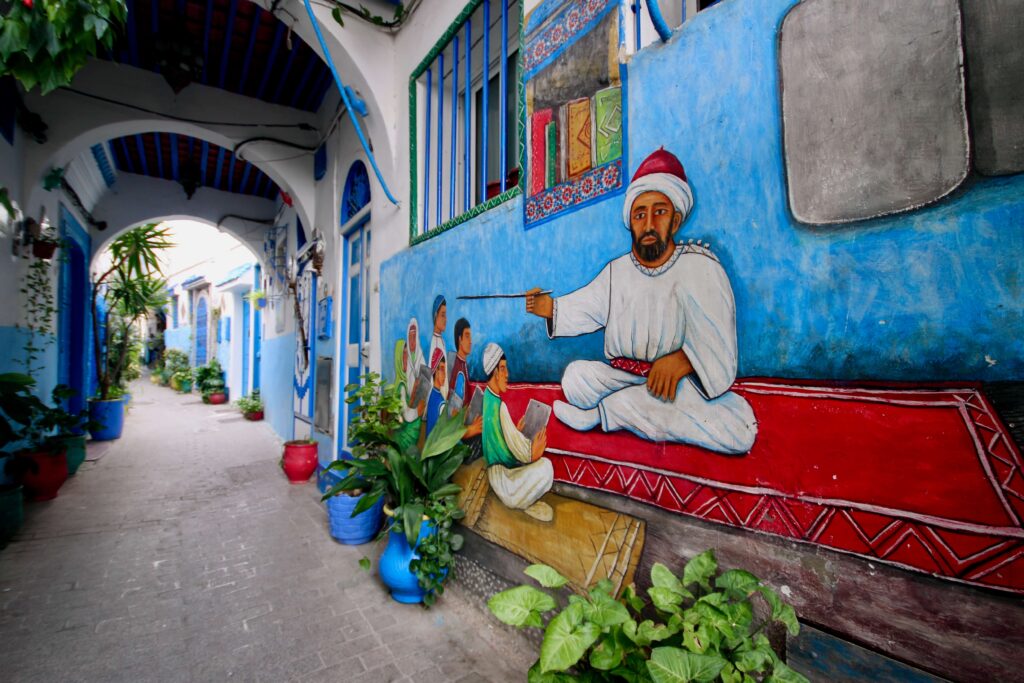
Disclosure: This article contains affiliate links, meaning I earn a small commission when you make a purchase. Affiliate links cost you nothing and ensure my content stays free!
Fake “guide” scams in Morocco
Sadly, this type of scam is really prevalent in certain areas of Morocco. I’m looking at you Marrakech and Fes! And for solo travellers, it can be even more common as you are seen as easy targets.
Typically, the scenario unfolds with someone approaching you out of nowhere, under the pretense they are offering you help. They might say something like: “You’re going in the wrong direction”. Or “Be careful of your bag”, hoping to immediately earn your trust.
Sometimes, this evolves into helping you locate a tourist site, a local shop or your accommodation. Once there, they will demand an excessively high “tip” for the brief assistance they provided.
It can be really frustrating when you genuinely think someone is just being helpful out of the goodness of their heart.
Some of these “helpers” also attempt to pose as official city guides, complete with fake IDs to validate their claims. More often than not, they will lead you to shops or restaurants where they earn commissions for bringing in customers. Even if those places are overpriced or of poor quality.
Occasionally, the scammer may refuse to leave until you have agreed to an unreasonable payment. Many people end up handing over money just to resolve the situation.
Side note:
I want to say that the majority of Moroccan people are incredibly helpful and if you ever need assistance, there’s a good chance that whoever you approach will do just that (no tip required). But it’s the ones who approach YOU out of nowhere that you need to be wary of.
Before judging these people too harshly, it’s worth keeping in mind that wages in the country are very low. And for those who are unable to engage in the tourist economy through honest means, this becomes an alternative way of making ends meet.
How to avoid “fake” guide scams in Morocco
In some instances, the help of these “guides” might actually be appreciated (finding riads in medinas can be challenging!). In response, you may not mind giving them a tip. However, if you prefer not to receive unsolicited assistance or advice, the most effective response is to firmly say “no thank you” and keep walking.
Often, this will be enough and they will leave you be. If they persist, I suggest alerting a nearby local. I’ve done this before and was really grateful for the help I received.
Many Moroccans feel embarrassed by such predatory behaviour from their fellow citizens. If they see you are uncomfortable, they will likely intervene.
Lastly, avoid arranging tour operators or guides on the spot. Trustworthy companies will have an online presence and verifiable reviews. Some also have an official website where you can find information about their services and pricing.
I find reliable tour platforms like Viator and GetYourGuide to be really useful as they allow you to browse a variety of options and read reviews from actual travellers who have used the tour guide/company’s services. It minimises the risk of ending up in a situation you don’t want to be in, with someone who doesn’t have your best interests at heart.
Looking for highly-rated Morocco tours for solo travellers? Check out some of my recommendations in Marrakech and Fes.
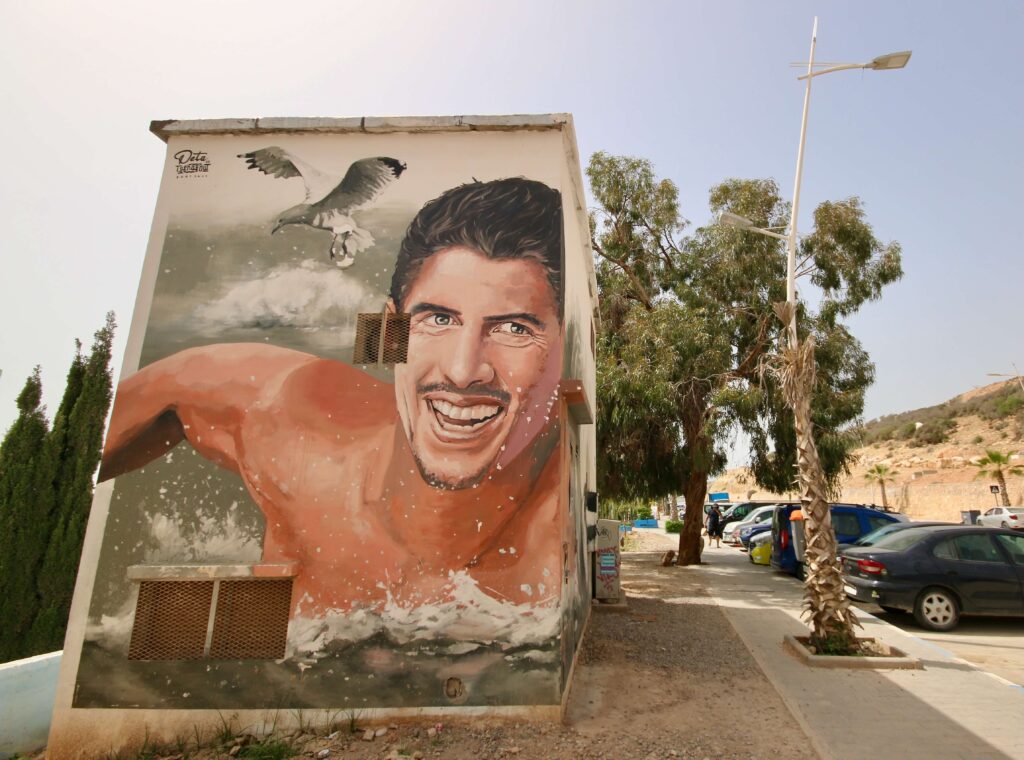
Taxi scams in Morocco
One of the most common ways tourists get scammed in Morocco is through inflated taxi prices. Trust me, it’s happened to me. Moroccan taxi scams can be particularly demoralising if they occur at the airport, right after you’ve arrived in the country. It’s not a good first impression.
Disclaimer:
Not all Moroccan taxi drivers will try to scam you. In fact, the majority I have travelled with are honest and some have gone out of their way to get me where I need to be safely. I’ve also had taxi drivers quote prices that I think are well below a living wage and I’ve volunteered to pay more than the asking price.
But, as they say, a few bad apples can spoil the bunch and taxi scams in Morocco have tainted the reputation of ALL drivers in the country.
Taxi scams in Morocco may include quoting severely inflated fares to tourists (much higher than the standard price) or saying that a meter is broken when it’s not. By the way, metered taxis are required to have operational meters. If the meter really isn’t working, the driver shouldn’t be on the road.
Another common taxi scam in Morocco is meter tampering, which happened to me last time I was in Fes. The driver was shielding my view of the meter by having his hand constantly positioned on the stick shift. I soon realised he was pressing buttons to increase the displayed fare.
After calling him out on it, we got into an argument and I threatened to contact the gendarmes. He quickly backed down and we agreed on a fixed rate to get me to my destination.
How to avoid taxi scams in Morocco
To prevent being overcharged or becoming a victim to a Moroccan taxi scam, it’s a good idea to research average fare prices for your route. You can do this by searching online or asking at your riad or hotel in Morocco. Staff will usually have a good idea of local taxi prices.
If the taxi is metered, make sure you can clearly see it at all times. I also suggest asking the driver roughly what the fare will be before you get in.
Some routes have fixed pricing. Additionally, many drivers of metered taxis are happy to negotiate a fixed price fare if you feel more comfortable knowing what the taxi ride is going to cost beforehand.
If you prefer NOT to deal with taxis when you first arrive in Morocco, you can book an airport transfer with Welcome Pickups. It’s easy to pre-book a transfer online.
After booking, you’ll receive information about your driver and the arranged pickup point. In most cases, they’ll have a sign with your name in the arrivals area. It’s a hassle-free way to get to your accommodation after arriving in Morocco when you may be dealing with jet lag and/or culture shock.
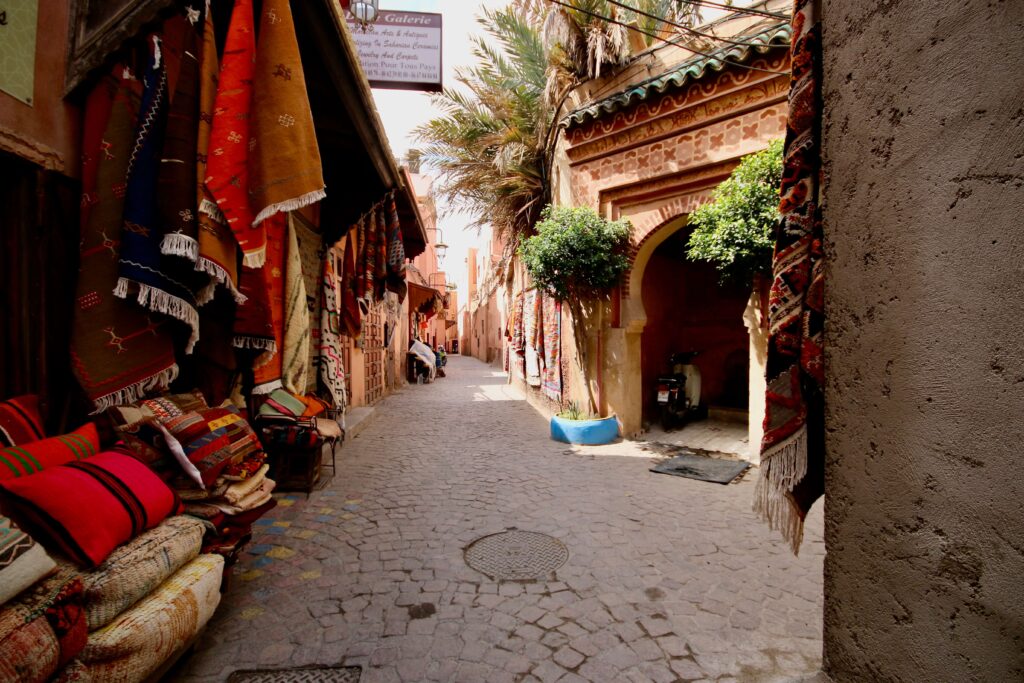
Counterfeit product scams in Morocco
It’s no secret that Morocco is home to some incredible souks. Here, you’ll find everything from handmade leather products to fragrant spices and argan oil.
However, these bustling markets may also contain fake items pretending to be authentic. Unfortunately, tourists aren’t always getting what they’re paying for.
This is especially the case in Marrakech and Fes – two of the country’s major tourist destinations. Visitors come to these cities to shop for quintessential Moroccan goods, such as Amazigh-woven rugs, locally grown saffron and fragrant argan oil.
Many people are visiting on short weekends away. This means they don’t have time to research particular products to know what they should be looking for.
Rather than going to reputable stores or cooperatives that are recognised for offering genuine, high-quality items, they end up buying from a cheap market stall in the middle of the medina. In many cases, they simply take the word of the vendor that the goods are “authentic”, even if they could be cheap imitations.
Counterfeit rugs
Dishonest vendors in the souks of Marrakech and Fes might sell carpets, claiming they are antique finds from distant Amazigh tribes. In fact, they might be mass-produced replicas from a city factory.
These sellers sometimes use aggressive sales tactics, insisting that the buyer can resell the item for a significant profit back home. In other cases, they will drastically reduce the price suddenly to close the sale.
If you can’t visit a cooperative where authentic Amazigh carpets are available, enquire at your hotel for a reliable seller nearby. This article is filled with useful information about the best places to buy authentic rugs in Morocco.
Counterfeit argan oil
Likewise, Morocco’s prized argan oil, celebrated for its health and beauty advantages, is sometimes mixed with more common oils but marketed as the “real deal.”
To steer clear of scams, it’s best to buy argan oil from a cooperative near Essaouira or Agadir. This is where the oil is produced. The likelihood of encountering a counterfeit product here is much lower.
Counterfeit saffron
Saffron, one of the most expensive spices globally, is also a common target for counterfeiters. In some cases, cheap safflower is used as a substitute.
The most effective way to recognise genuine saffron is by its strong, unique aroma. Authentic saffron has a very potent, pungent scent.
If you’re still uncertain, ask a trusted local to accompany you to the market. Many riad owners go the extra mile to assist their guests with small tasks like this!
How to avoid purchasing counterfeit or poor-quality Moroccan crafts:
- Educate yourself on the key characteristics to look for when shopping for authentic products in Morocco
- Shop at reputable stores or cooperatives that are recognised for offering genuine, high-quality goods
- Avoid deals that appear too good to be true, as they often are
If you’re intending to make a significant investment (such as buying a rug or leather goods), I suggest a private shopping guide. These tours are led by knowledgeable locals, who can distinguish between authentic and fake products. Plus, they can be customised to focus on the items you’re most interested in purchasing.
This guided tour of the Marrakech souks is one example of the experiences available on Viator that are specifically tailored for shopping.
Menu switching scams in Morocco
Dining out in Morocco dishes up some amazing experiences – Moroccan cuisine is an attraction in its own right! However, sitting down at a restaurant doesn’t come without risks, as the “menu switch scam” is here to teach us.
I want to preface this by saying that I have never experienced this myself. But I’ve heard that it does happen, most commonly at tourist restaurants at the lower end of the market.
What it involves is being enticed into a restaurant by the cheap prices displayed on a menu. However, once the bill arrives, it’s much higher than you thought.
If you protest, the staff present a different menu as “evidence” of the actual pricing, leaving you confused and with little option but to pay.
How to avoid the menu switching scam in Morocco
If you find yourself in this predicament, the best thing to do is to pay what you think is reasonable and then leave. If the staff continue to press you, threaten to contact the authorities (call 190 for police). The restaurant might already be known to them.
I also suggest posting a review on TripAdvisor to alert other diners about the scam taking place. This will hopefully act as a powerful deterrent.
To prevent falling victim to this common Moroccan scam in the first place, I suggest taking a photo of the menu you receive initially. That way, you can refer to it when the bill arrives.
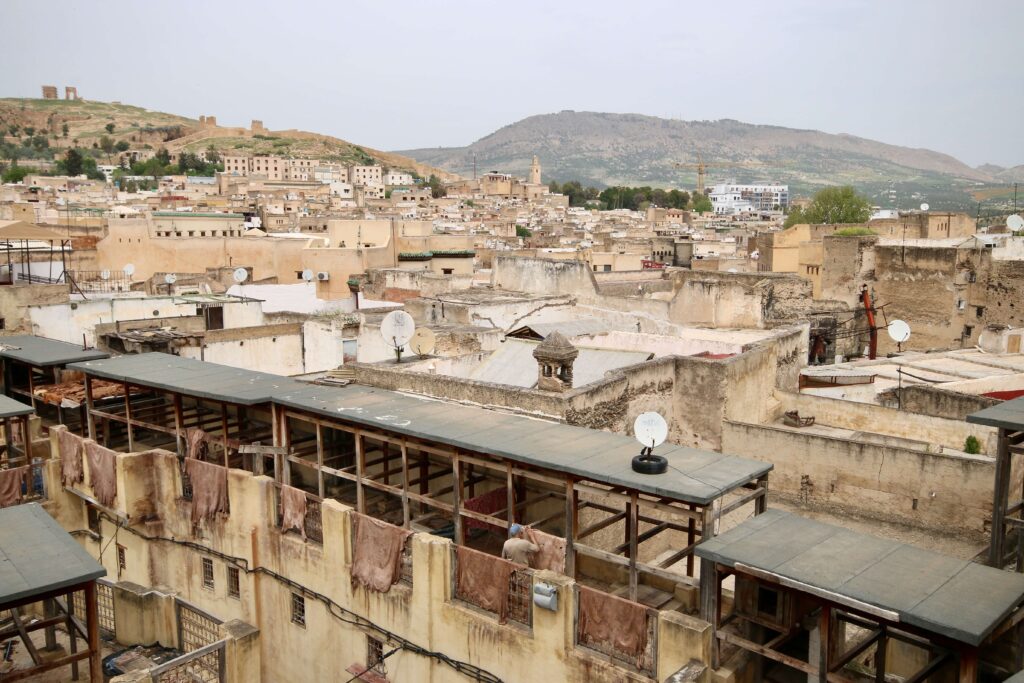
Leather tannery scams in Morocco
Morocco’s leather tanneries, especially those in the historic city of Fes, have long been an attraction for tourists looking for a unique cultural experience. Here, you can get a bird’s eye view of the vats filled with colourful dyes and see hides hanging to dry, as well as browse a huge range of handmade leather goods.
Unfortunately, some leather tanneries have also turned into hotspots for scams. As you walk near these tanneries, you might encounter overly friendly individuals who claim to offer a helpful service.
They will assure you that entering the tanneries through the main entrance will incur high admission fees. But they can lead you to an “exclusive” entry point where you won’t have to pay.
Although the idea of avoiding an entrance fee may seem appealing, that’s not the reality. There is no fee to enter the Fes leather tanneries. Just an expectation that you will either make a purchase or tip one of the guides who explains the tanning process.
If you just want to go up to the viewing terrace and take a few photos, you can do this absolutely free (always check with the doorman first).
If you do follow one of these fake guides through an alternative entrance, they will likely start demanding exorbitant amounts of money. Travellers have reported being aggressively coerced into paying for an “exclusive tour” of the tanneries.
How to avoid leathery tannery scams in Morocco
Always access the tanneries via the main entrances. If you’re looking for a guided experience once you’re inside, make sure to settle on a reasonable, upfront price before moving forward.
If you want to avoid all of this hassle full stop, you can book a guided tour of Fes with a trustworthy operator, including a visit to the tanneries.
Side scams
The same Fes “guides” who try to lead tourists to alternative tannery entrances may also try to convince you there’s a historic pharmacy nearby that’s only open one day of the year….and that day happens to be today!
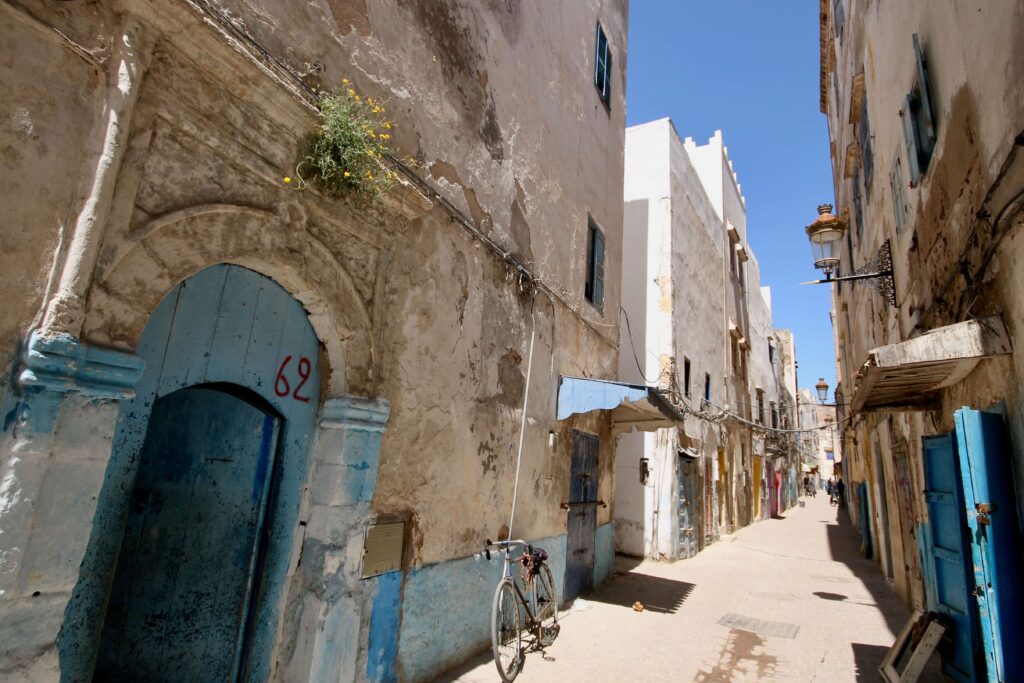
Hashish scams
You might have heard that Moroccan kif (cannabis) is legendary and you might be tempted to try it yourself. But it’s important to be aware that you could find yourself in the middle of one of Morocco’s most common scams.
Solo travellers are particularly susceptible to this as they don’t have someone to gauge the risks involved when the situation arises.
Here’s how it typically unfolds: a hashish dealer will approach you and propose selling a large amount of kif. To build trust, they might share a smoke with you, creating a false sense of security. All the while, they are in league with a corrupt police officer who is lurking nearby.
Eventually, the officer will appear and demand that you pay a bribe to avoid being arrested for possessing illegal substances.
How to avoid hashish scams in Morocco
The most effective way to avoid falling into this trap is to simply avoid buying any drugs while travelling in Morocco. It’s important to be aware that the repercussions of drug possession can be severe, including the risk of imprisonment.
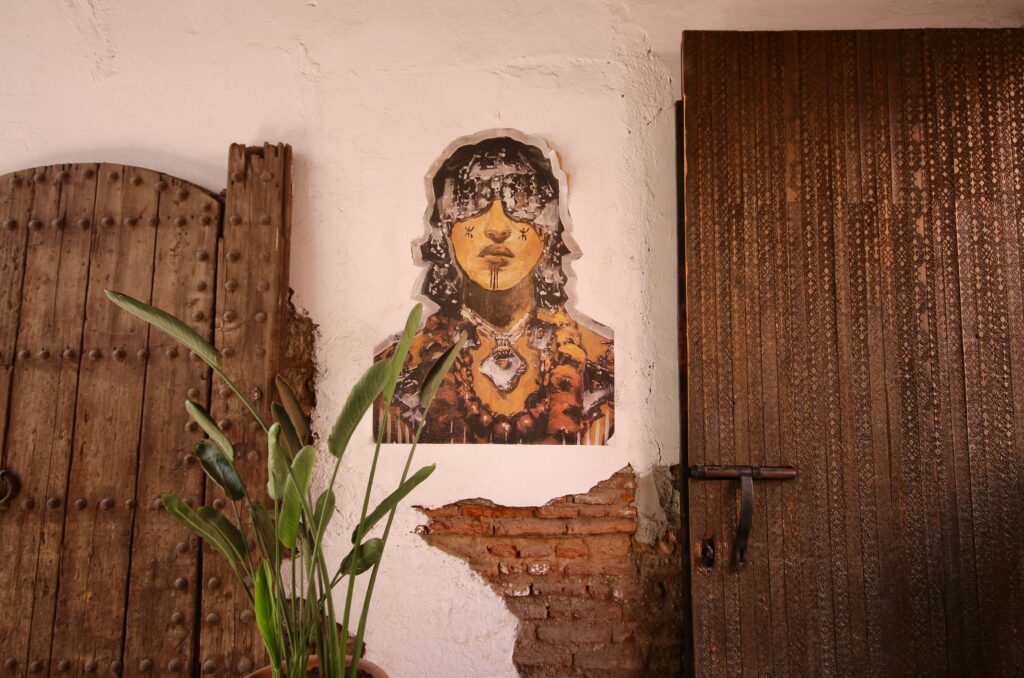
Djemaa el-Fnaa scams in Morocco
Djemma el-Fnaa is arguably the most touristy part of Morocco’s most touristy city, Marrakech. So it’s no surprise that you might encounter a few scams in the square. Nevertheless, I still think it’s the kind of place you have to visit, albeit while having your wits about you.
One of the most common Moroccan scams in Djemaa el-Fnaa is women “accidentally” spilling ink on your hand. Then, they will offer a full henna hand tattoo to “fix” the situation.
Once the tattoo is done, the woman will quickly demand a few hundred Moroccan Dirhams, regardless of the tattoo’s quality or whether you even wanted it in the first place.
You might also notice men in Djemaa el-Fnaa with exotic animals like snakes and monkeys. Sometimes, they suddenly place these on unsuspecting tourists, insisting they take a photo.
As soon as you agree, the men will use your camera or phone to take a picture. Then, they’ll demand a fee that seems much higher than what the brief encounter deserves.
How to avoid Djemaa el-Fnaa scams in Morocco
I personally don’t agree with putting wild animals in these situations. So I recommend staying away from these men full stop.
However, if you do want to take a photo with a monkey on a chain or a half-hypnotised snake, it’s essential to agree on a reasonable price beforehand. Then, once the deal is done, walk away to avoid being asked for more.
If you don’t want a henna tattoo, it’s best to politely refuse any offers and walk away, even if dye has been spilled on you. If you do want one, be sure to agree on a price beforehand. I’d suggest typing the price into the calculator on your phone so nobody can claim they “misunderstood” at the end.
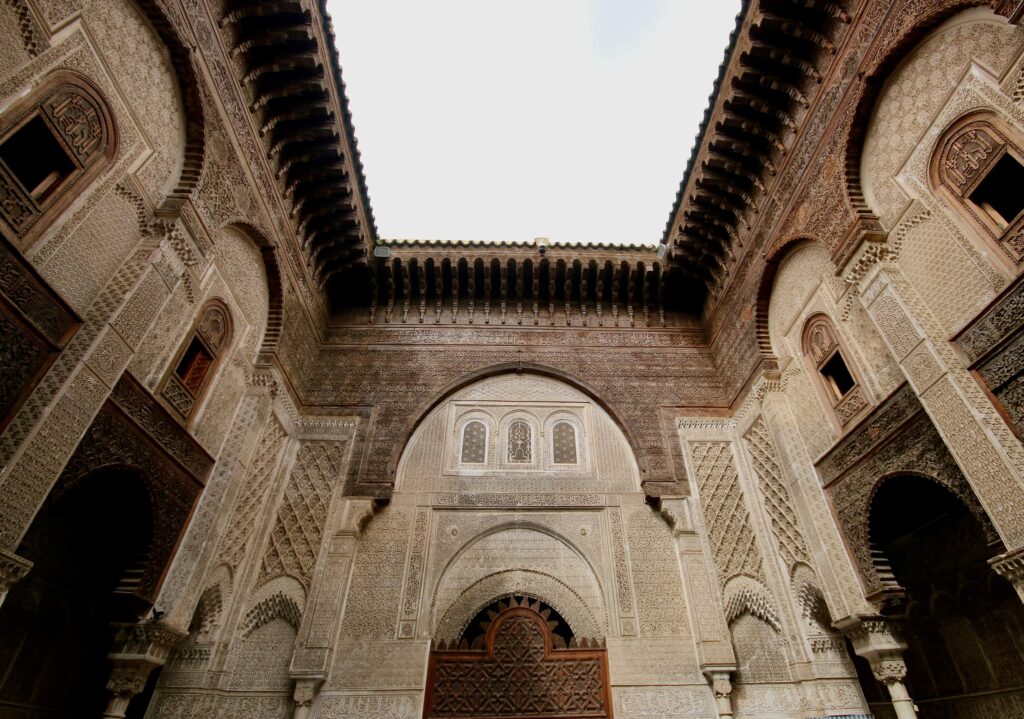
Pickpocketing in Morocco
Although pickpocketing isn’t exactly classified as a “scam” (it’s more of a petty crime), it’s definitely something to be cautious about in busy tourist spots worldwide. Personally, I’ve never experienced it in Morocco. But I have heard about it occurring in highly congested parts of Fes and Marrakech, particularly Djemaa el-Fnaa.
In these areas, Moroccan pickpockets can easily grab wallets and phones when you’re stuck in foot traffic jams or busy browsing a souk stall. Unfortunately, by the time you notice what’s happened, the thief has already disappeared, making it very difficult to recover your belongings.
How to avoid pickpocketing in Morocco
To protect yourself from becoming a victim of this common Moroccan scam, avoid wearing flashy jewellery or expensive watches while exploring Moroccan cities. And always remain extremely alert in crowded areas.
Keep your money, cards and phone tucked away. Rather than in back or side pockets, where it can be easily taken.
You might also want to think about using an anti-theft bag or a travel money belt to keep your valuables secure. It’s hard for anyone to get at your credit cards and cash when they are hidden under your clothes!
Personally, I never take my passport with me when sightseeing. I prefer to store it safely in a deposit box at the hotel.
Take out travel insurance for Morocco
To provide peace of mind in case you are the victim of a scam in Morocco, I strongly suggest taking out travel insurance. It can help cover the expenses of lost belongings if you fall victim to pickpocketing or other petty crimes.
SafetyWing is my go-to choice when looking for travel insurance in Morocco. It provides comprehensive options for both short-term and long-term travellers. Not only can you find a
SafetyWing has earned good reviews on TrustPilot for its easy-to-use quoting process, detailed plan information and excellent customer service. After several great experiences, it has become my preferred option when I need to look into and purchase travel insurance, whether for Morocco or any other destination.
You can learn more about travel insurance for Morocco here.
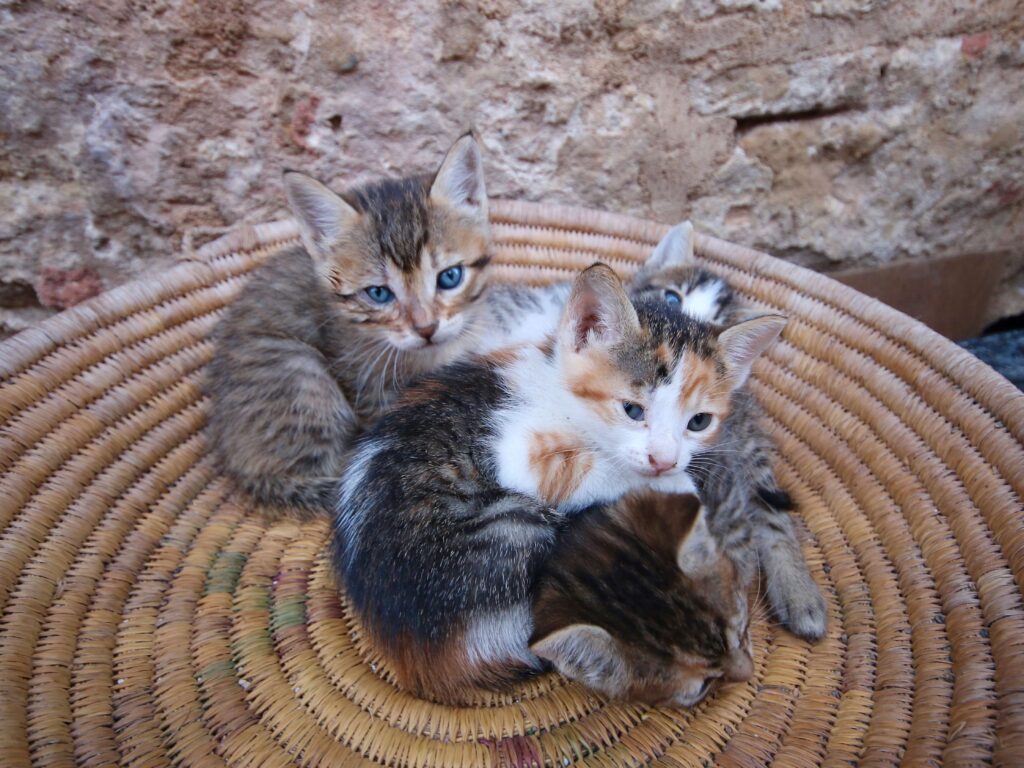
“Speak” the Moroccan love language
If you want to reduce the chance of becoming a victim of Moroccan scams, I would suggest trying to speak the love language of Moroccans. What is that, you might ask? Well, in my opinion, it’s showing respect and bringing good energy to conversations and interactions.
Respect is really important in Moroccan culture and I don’t mean this in a stuffy, formal way. It’s more about taking the time to greet someone and asking how they are, before launching into discussions about prices or services.
It’s something we often rush or omit in Western cultures. But it’s a little thing that makes a big difference in Morocco.
All too often, I see tourists approach Moroccans with their guard up or even with a touch of hostility. Perhaps this is because they are worried about being scammed in the first place. There is no greeting – they just launch into what they want.
In some cases, I think this offends and it rarely leads to positive interactions.
No matter who I want to address, I always begin with “Salaam Alaikum” (“Peace Be Upon You”) and ask how the person is. It doesn’t really matter what language you use (English, French, Darija) – it’s the gesture that counts.
I’d also recommend bringing positive energy, whether that’s by smiling or making a lighthearted joke. If my husband is anything to go by, Moroccans love to laugh and make playful jokes, even if they’ve just met someone.
This is an easy way of showing that you want to interact as two humans. Rather than as a “buyer” and a “seller”.
I’m not saying that speaking the Moroccan love language will stop you from getting scammed altogether. But I think treating one another with kindness and respect can go a long way to forging connections that are mutually rewarding, respectful and memorable for all the right reasons.
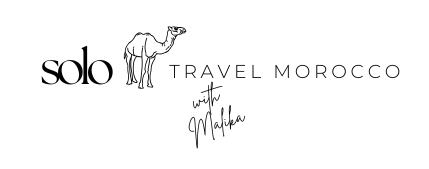
PLAN YOUR TRIP WITH MY FAVOURITE RESOURCES:
Find hotels via Booking
Book tours and attractions via Viator or GetYourGuide
Find a rental car via Discover Cars
Book flights via Kiwi or Booking
Search for buses and trains via 12Go or Omio
Get travel insurance via SafetyWing
Buy a digital eSIM with Airalo
By purchasing through my links, you’ll be supporting my website at no additional cost to you
-
Al Boraq High-Speed Trains: What Solo Travellers Should Know
Since it launched in late 2018, Morocco’s Al Boraq high-speed train has transformed how travellers move around the country. I’ve ridden it several times now (from Tangier to Rabat and from Kenitra to Casablanca) and it’s a really fun (and highly efficient) experience! Travelling at speeds of up to 320 km/h, Al Boraq trains are…
-
Why Morocco Is Ideal for Low-Impact Solo Travel
I often look back on the way I travelled in my 20s and realise it was all about me getting the most out of my destination. I wanted to see as much as I could on the limited budget I had available, and have lots of photos as proof of my trip. Fast-forward a couple…
-
Is June a Good Time to Visit Morocco? A Solo Traveller’s Guide
June in Morocco is somewhat unique and, dare I say, one of the best months to visit the country. It sits between spring’s mild temperatures and the peak summer heat, leading many travellers to overlook it entirely. But for solo travellers who don’t have to take their annual holidays in July/August and want to avoid…
-
Is May a Good Time to Visit Morocco? A Solo Traveller’s Guide
If you’re wondering whether May is a good time to visit Morocco as a solo traveller, this guide is for you! It details everything from weather to crowds and the best places to visit in Morocco in May to help you decide if it’s right for you. May in Morocco is hinting at summer, but…
-
Solo Travel in Morocco: A Complete Beginner’s Guide
So you’re thinking about travelling solo to Morocco. But you don’t know where to start, what to do or if you should travel independently in the first place! It’s a lot to wrap your head around. But don’t panic! I’m here to help, with 10+ years of experience travelling solo around Morocco. I’ve travelled from…
-
Is April a Good Time to Visit Morocco? A Solo Traveller’s Guide
With warming temperatures and landscapes in full spring bloom, April is one of Morocco’s most appealing months for solo travel. But it’s also one of the busiest times to be in Morocco – you’ve been warned! I find Morocco’s most popular travel destinations (Marrakech, Fes, Essaouira) are noticeably busier in April. Probably because the temperatures…

I’m Malika, an Australian-born travel writer with an intense love for Morocco. I first travelled here solo in 2014 and after meeting (and marrying) a local, I made this North African gem my home.
Over the last 10 years, I have explored the country extensively, travelling to all corners with my partner, friends and solo.
